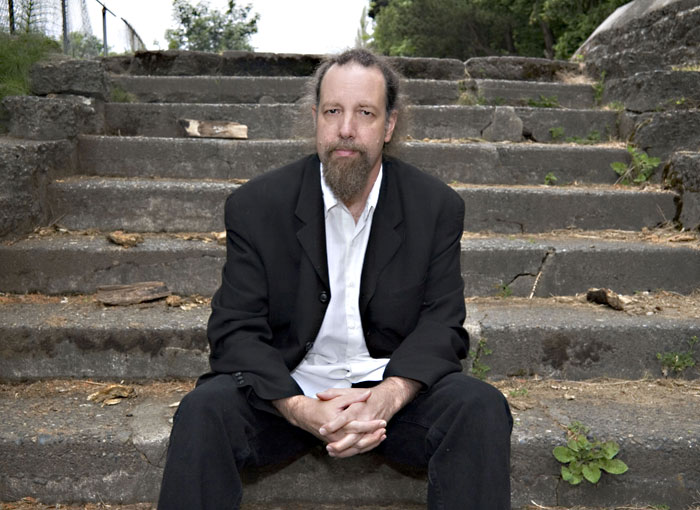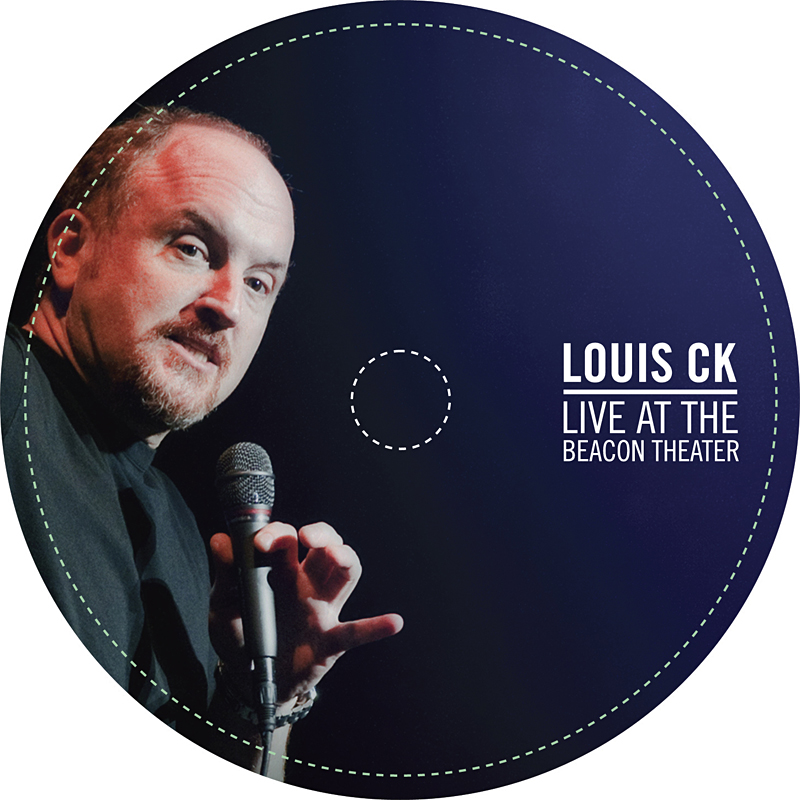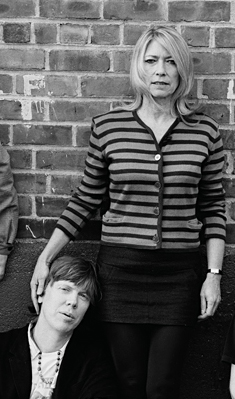Sir Richard Bishop no longer calls Seattle home. From the early ’90s until last year, he lived and worked in Ballard as a member of the eccentric and talented Sun City Girls (SCG), a resolutely underground trio he formed with his brother, Alan, and Charles Gocher, the latter a sort of father figure to the younger Bishops. The music they made defied categorization, but could be considered a psychedelic stew of hippie folk, punk rock, jazz improv, and the wonky tonalities of Arabic and Far Eastern music–though even that description falls short of capturing their splattered palette of sound. But in 2008, following Gocher’s death from lung cancer, SCG called it quits and Sir Rick packed up his things and relocated to Oakland, California.
“I needed to separate myself from Seattle and all things familiar in order to have a clean slate, musically and otherwise,” says Bishop from his home. “It was something I knew I had to do. Sometimes you just outlive a location.”
Though Seattle was home base for SCG, Bishop spent those 17 years traveling the globe with the fervency of a U.S. diplomat. Doing so, he absorbed the musical dialects of places as far-flung as Thailand, Saudi Arabia, Liberia, and Brazil, to name a pithy few. As a result, his previous solo records (for the uninitiated, 2008’s Polytheistic Fragments is a good starting point) have been like international buffet tables of sound—silver platters piled high with ethnic goodies such as raga, flamenco, Gypsy, and Appalachian styles. But if there’s one musical language he’s proven most comfortable speaking over the years—both solo and with SCG—it’s Arabic. His interest there stems from having been raised in a Lebanese community outside Detroit, where he spent hours listening to his grandfather, an oud and lute player. That informal education has helped lend his latest release, The Freak of Araby, a warm, assured tone, the sound of a man returning home after years living abroad. Funny, then, that it took Bishop’s leaving Seattle to achieve that feeling.
In Oakland, Bishop shares an apartment with Mark Gergis, a musician who is also his partner in Sublime Frequencies, the eclectic world-music label started by the Bishop brothers. Unlike most parts of Seattle, Oakland still has cheap rent. Because of this, and with fewer social and business commitments, Bishop has been able to immerse himself fully in music, especially in the Middle Eastern styles he heard on the records Gergis brought back from his own globetrotting adventures.
“We’re talking stacks of vintage vinyl,” says Bishop of Gergis’ audio souvenirs. “Towering piles of Syrian and Lebanese mp3 discs, cassettes, VCDs, and more… tons of it. I dove in headfirst and began what would be an extensive listening session which lasted several months. All day, every day!”
Bishop was particularly taken with one guitarist in particular, an Egyptian named Omar Khorshid who revolutionized Arabic music in the ’70s by playing electric guitar with an orchestra. “There are no flashy runs or shredding or anything like that,” Bishop says of Khorshid. “His guitar tone is clean, and it seems that every note was well-thought-out. There was always a lot of reverb or delay present.”
Inspired by Khorshid, Bishop plugged in his guitar for the first time in his solo career. With a small ensemble, he recorded The Freak of Araby, a mix of original tunes and Middle Eastern standards which was released last month. Whereas his previous albums feel like audio scrapbooks from his journeys around the world, Araby focuses solely on the music of North Africa and the Middle East. The instrumental material evokes the mood of a midnight journey to Marrakech. Bishop’s guitar is clear and shimmering, accompanied by the patter of hand drums and the clang of metallic percussion. But it also has a dark allure, as though these songs were being performed in the backrooms of Moroccan nightclubs we’re not normally permitted to enter.
Of course, Araby is far from ethnically pure, to the point that some might consider it an irreverent take on Middle Eastern music. But Bishop—carrying on the SCG tradition—is not out to recreate the musical worlds that already exist (a la Putumayo), but to conjure entirely new ones. Thus, Araby is an Arabic album containing traces of spaghetti-Western soundtracks, surf music, and Delta blues. Like the belly dancer gracing Araby‘s cover, the album possesses an exotic magnetism —Bishop’s homage to the aura that gripped him in the first place.
“Arabic music really provides an atmospheric presence that says ‘Come and experience this,'” he says. “I can’t understand the words I’m hearing because I don’t speak the language, but I know the music is about the joys and sorrows of love. I can literally feel those sounds.”
Like Bishop’s move to California, Araby was an experiment. But both experiments worked—good news for fans of his music, but bad news for proud Seattleites, because, alas, it doesn’t sound as if he’ll be returning anytime soon.
“Once I got settled in Oakland and became a little familiar with it, I realized that this place was alive,” he says. “It had a pulse and an unpredictability factor that Seattle could no longer provide for me. Seattle’s always been a beautiful place and I enjoyed most of my time there, but I now feel the city is on life support. There seems to be a tremendous amount of creative energy here in Oakland. Or maybe there’s just something in the water. I really don’t know how to explain it in any way that would make sense. I just accomplished so much in my first 10 months here. I could hardly believe it.”








